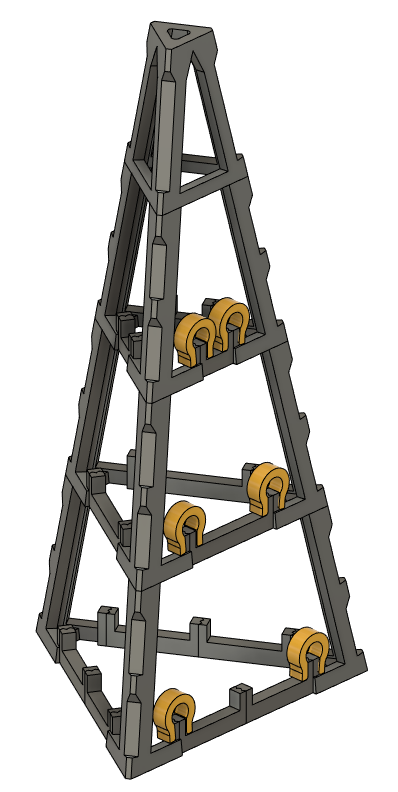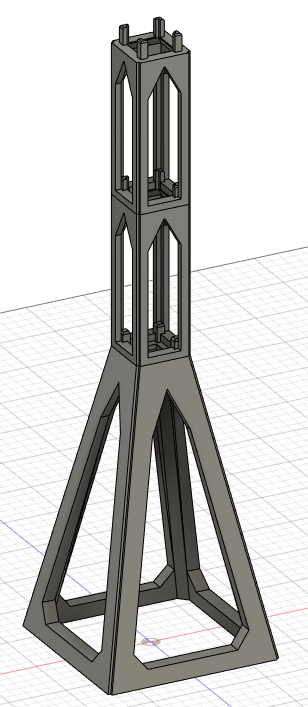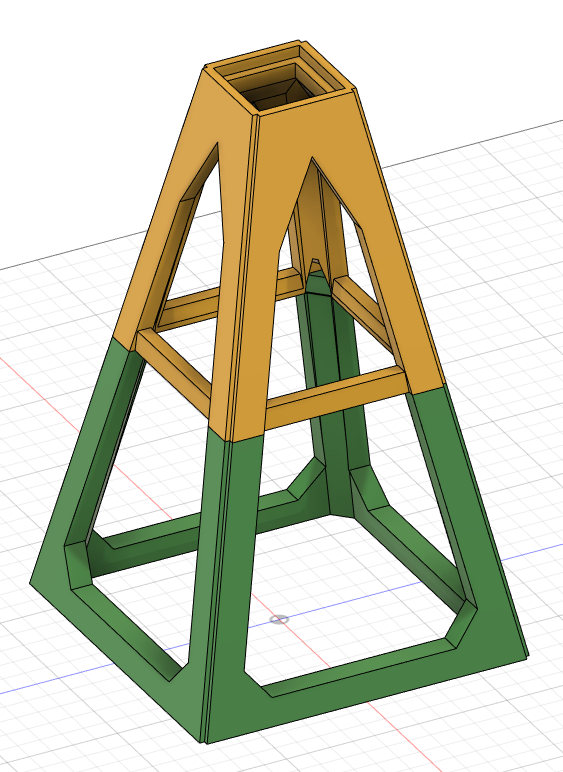Tower Jigs - 3D Models
Below are the 3D Models used in the kits. The original kits used ABS and PET-G filament. But ABS is harder to 3D print. Other plastic materials like PLA will work just a well. I have found PET-G offers the best strength and easiest to print. I recommend testing your printed parts to verify you are comfortable with the strength. The 3D printer settings will effect this greatly. We make no promises that any models below are strong enough. How a 3D printer is configured and the material used will effect the model's strength.
There are two types of files available for download. The STL files which are 3D definition files. Most 3D printers do not accept these type of files. A conversion or slicing program must be used before most 3D printers can print these models. Consulate your 3D printer manual for more information.
The other file type is the F3D files. The models were created in Autodesk's Fusion 360 software. This is a free 3D CAD software to students and educators. Many of the models below have their Fusion 360 files (F3D) available for download. This will allow modifications to the models.
Note: We recommend using PET-G for all models shown below. Other filaments can be used.
Tower Div C - 2025 Rules

Provides a modular tower jig that can be disassembled to make removing the structure easier. The dimensions are based on the template guide found on the national website.
This jig is designed to use less plastic than other jigs found online. On my 3D printer (Bambu Labs X1C), this model uses just under 500 grams of filament. The amount of filament can be reduced by using large binder clips instead of the 3D printed Jig Clamps.

